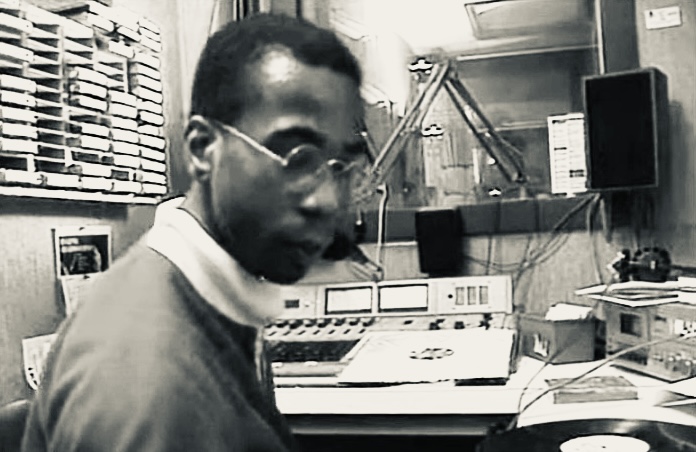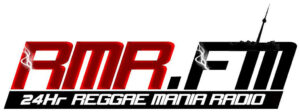

My broadcasting legacy and reputability falls back to 1983 on CKLN 88.1 FM Toronto, a community radio station no longer in existence, that was based out of Ryerson University now known as Metropolitan University. On my first day at Ryerson, I applied for a show and got an on-air slot playing alternative rock and new wave while sliding in some funk and rap. I got fired for playing too much Black music after a few months, only to get a new show back where I was then allowed to play the exclusive yet underground Black music that I wanted, and that’s how Toronto’s first rap music show was born.
I used this opportunity to create, dee-jay and host the Fantastic Voyage Program, now credited as Canada’s first rap-hip hop radio show, originally heard on Saturday afternoons from 1 – 3 PM before being extended to 1 – 4 PM a short time later. Talk to anyone old school head connected to urban music in Toronto, and they will tell you stories of the Fantastic Voyage, because everyone listened to CKLN back in the early 80’s to early 90’s, and it is a historical radio station and show that influenced and shaped so many people’s lives and musical tastes.
Ironically, I qualified to get into Ryerson partly because I had set up and managed a make-shift radio station in high school using basic dee-jay equipment with speakers piped into the main cafeteria and hallways and starring the best music heads from grades 10 – 13. Today, the Fantastic Voyage has it’s own cult following because those special days are cherished and we can never get them back. The Fantastic Voyage Program remains without doubt, the most pivotal radio show in Toronto’s early rap history.
One day I left the Fantastic Voyage, passing on the show to DJ X and renaming it the PowerMove, a purely hip-hop show. Shortly after, I became the host and dee-jay of CKLN Friday Night ReggaeMania. David Kingston formerly held this 9 – 12 PM Friday night spot as the dee-jay and host of the wildly popular Reggae Showcase, then one day he suddenly quit. I filled in for some time before being permanently handed the slot by Marva Jackson, the station manager-program director at the time.
I named the show ReggaeManja and changed the format from classic and foundation reggae to new and surging hardcore dancehall, and the timing was perfect. It was a unique story, a community radio broadcaster being able to switch from dee-jaying and hosting the city’s top hip-hop radio show, leaving it, then taking a new dancehall-reggae show to that same number one position.
During the early 90’s, I was doing business with WBLK Buffalo. I was busy producing most of those commercials promoting Toronto nightclub events on WBLK, and because of my relationship with them, was able to get the go ahead for a show I proposed to them called the Advance Remix. For 2 years, I hosted and produced the Advance Remix, aired Saturday nights 10 PM – 12 Midnight on WBLK, and featuring mash ups and master mixes of the best funk, R&B and Hip-hop mixed by a variety of Toronto’s best dee-jays with myself as engineer inside my Apache Studios. Some mixes were also used for the WBLK power jams aired during afternoon drives. Historically, before Flow, WBLK was the ish for anyone craving urban music living in Toronto. With the exception of WBLK live-to-airs, I believe historically, I was the first, and to date only Canadian to ever host a radio show on this epic American station.
After years of Friday Night ReggaeMania, the station, after internal issues and severe infighting, was eventually stripped of its license by the CRTC and dissolved. In 2012 – 2014, I took ReggaeMania online for a while and created Sound System Fridays, a weekly Friday night show from my Scarborough office featuring top local and international sound systems spinning their dubs and showing of their emcees for all to see on U-Stream and ReggaeMania Radio.
I also played on CHIN-FM for just over a year as dee-jay and host of Saturday Night ReggaeMania. This experiment didn’t work, despite our best efforts, myself and the Denise Jones team could not get people to tune in for 2 hours every Saturday on a multi-language ethnic radio station with no urban base or cultural link to the Black, urban and reggae music community.
During this time, Toronto reggae shows and reggae music were being delivered on platforms with more urban and relatable environments, and the online options were coming in strong offering listeners immediate gratification. Another factor – there were too many options and distractions on Saturday nights at 10 PM other than listening to CHIN radio.The CHIN gig was my final radio gig. After that, I have not returned to radio broadcasting, and have no regrets.
People also ask why I never worked in Flow or G98.7. When Flow first launched, I applied there, scored an interview, and had a bad interview. I did not groove well with the American woman interviewing me, and despite my history, pioneering legacy and radio broadcasting degree, I was not awarded a job there. I also pissed off Denom Jolly on the night we both received Life Achievement Awards because it embarrassed him when during my acceptance speech, I encouraged people to keep asking Flow to play more reggae. Denom got up and walked out of the venue, apparently taking this hit personally. I’ve never reappeared on radio since then, and was told that same night that because of my comments I would be blacklisted from the one radio station in Toronto I was overqualified to work for. I have no regrets not working at that station. Me and Denom would’ve ego-clashed, and I’m glad the city never had to witness the carnage.
And that’s the story, generally, of my broadcasting history. Today, radio is no longer the ish. Specialty radio shows like the Fantastic Voyage live in our memory banks because new music is released too fast and too vast for any one radio program to dictate listener’s musical tastes in their instant-gratification worlds of Spotify, Apple Music, YouTube and other popular music and video platforms.
Drive through our city of Toronto and scan your FM Radio looking for Black or urban music and this is what you have to choose from. There are only two Canadian stations and one American one offering full time urban flavours, the rest delivering it in bits and pieces for the most part. Read more…
What Do Radio Broadcasters Do?
A radio broadcaster’s primary job duties are to create and present a radio program. They often interview guests, take calls from listeners, promote products or local events, and manage station contests. While interviewing guests on air, you must ask thoughtful questions to prompt interesting responses, moderate guests, and provide additional commentary. Most radio broadcasters specialize in a particular subject area, such as current news, music, or sports. In addition to broadcasting, sometimes you will attend live events to make public promotional appearances.
How to Be a Good Radio Broadcaster
A key component of becoming a broadcaster is developing a strong on-air personality. Good radio broadcasters have a likable persona, a clear voice, and extensive knowledge in a specific subject area related to their radio program. Radio broadcasters should also have excellent communication and interviewing skills, as well as the ability to work alongside a cohesive team.
[Written by ZipRecruiter Marketplace Research Team]

ReggaeMania Radio was an exciting venture, looking back there are things I could have done different. But I was eating, sleeping and breathing dancehall reggae, and I wanted to share this music with the world, so why not create a 24-hr online radio station – the technology was here. I remember the first time we tested the signal, and had a portable modem hooked up to the laptop as we drove down the DVP and then on the 401 to test the reception as there was nothing to compare it to locally at this time... 👀